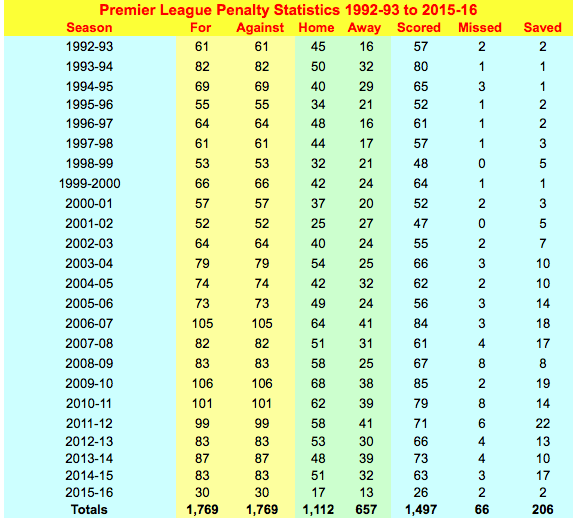Defending a penalty kick in soccer is one of the hardest things to do in all of sports. That is not my opinion, that is a fact that is proven by a plethora of statistics including shot conversion rates, how much ground a goalkeeper has to cover, and the fraction of time they have in order to cover that ground.
You stack everything up against a goalkeeper and the task of stopping a penalty kick might seem impossible. Impossible is a word that athletes don’t want to hear because it speaks to limitations and doubt and those are things you absolutely cannot have if you want to be successful as an athlete.
David Beckham once said, “Impossible is just a big word thrown around by small men who find it easier to live in the world they've been given than to explore the power they have to change it. Impossible is not a fact. It's an opinion. Impossible is not a declaration. It's a dare. Impossible is potential. Impossible is temporary. Impossible is nothing.” And although I agree with Mr. Beckham’s stance, he never had to try to stop a penalty kick. Here are three unreal stats you may not know about penalty kicks that might make the word impossible creep into even David Beckham’s mind.
3 Reasons Defending A Penalty Kick Is Nearly Impossible
To understand why it is so difficult to stop a penalty kick, you must first understand the size of the goal the keeper is defending. A regulation soccer goal is 8 feet tall by 24 feet wide. That gives you 192 square feet to defend. Comparisons have been made to that being a little bigger than a ship’s cargo, but how often do you pass by a ship hauling cargo?
Other comparisons, just to give you some idea of how large that area is, the dimensions of a large yellow school bus in the US are 7 ½ feet tall by 34 feet long. Now you may say that is much longer than the average goal. I agree, but the next time you walk by or see a yellow bus hauling kids to school, really look at it and think to yourself could I cover two-thirds of this entire bus in the blink of an eye if I had to?
Another comparison can be found be in the NBA, where the length from the baseline to the top of the three point arc is 3 inches shorter than the width of a soccer goal. So, ask yourself, "If I were standing in the center of the lane and someone threw a pass to top of the three point arc or to the baseline and I couldn’t move until the ball left his or her hand, could I get there in less than ½ a second?" And consider that ball is traveling only ½ the speed of what a soccer ball is kicked when a player is taking a penalty shot. This is just to give you an idea that the ground these goalkeepers have to cover is bigger than most people think.
A related thing that makes defending a penalty kick very, very hard is the speed the ball travels and the distance that it travels from.
During a penalty kick, the ball is set at 36 feet from the goal and, on average, the ball then travels at 70 mph. This means the ball will reach the goal in .400 milliseconds which is the equivalent to a blink of an eye. When you couple this fact with the idea that it could go into any of the available 192 square feet of goal, it turns out the goalkeeper has a slim chance to get there in time.
The second thing we will look at when talking about the difficulty of stopping a penalty kick is what percentage are not successful. For this purpose, I will use the EPL statistics since 1992 until this current season. Here is a breakdown of the stats.

This data tells us only 15% of penalty shots attempted do not score. There is nothing else in all of sports with this kind of failure rate. Another incredible stat is that researchers found that skilled keepers could predict the actions of the shooter at a rate of 70%; yet still only 15% of these shots are stopped. To put that in perspective, try to imagine a scenario where you could guess correctly 70% of the time and still only succeed at a rate of 15%.
Third and finally if you want to see how difficult it is to stop a penalty kick check out this video.
As you can see, even when the goalkeeper guesses correctly they still are not able to stop the goal from scoring. Which just shows how unbelievably hard it is to do.
Still, keepers do successfully defend against penalty kicks some of the time. So, maybe Beckham is right and every time a penalty kick is awarded it means a goalkeeper is daring the impossible. Take a look at some of these players who lived up to the challenge and proved, in fact, no matter how hard something may seem, or how unlikely the outcome may be, the fact remains that nothing is impossible.


